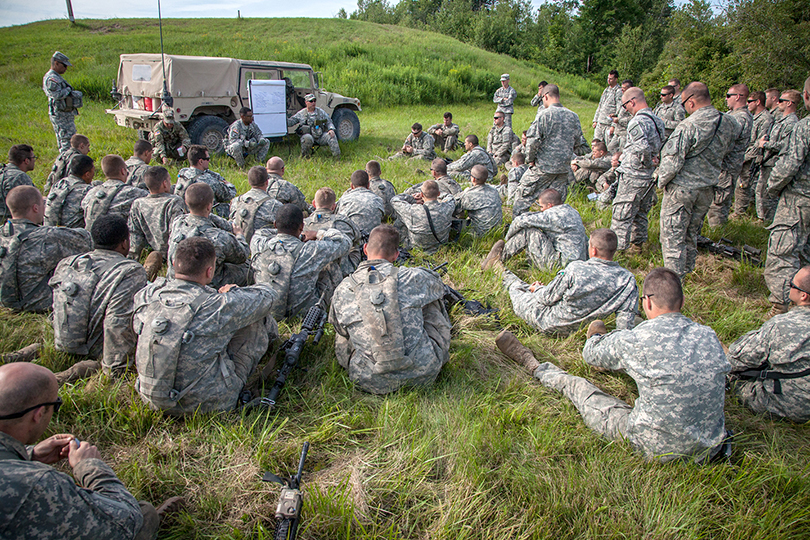WASHINGTON – Military veterans and the technology sector are a perfect match, industry leaders told Congress this week. They urged lawmakers to play matchmaker.
A string of recent successes in training veterans in technology career fields, most notably at Joint Base Lewis-McChord near Seattle, Washington, could serve as a model for other tech-heavy regions with nearby military bases — like New York’s Capital Region and Fort Drum.
“Partnering with private companies to help spur job growth and increase access to training and education is especially important here in New York, where we have so many high-tech companies and job opportunities for veterans,” Rep. Lee Zeldin, R-N.Y., who sits on the Veterans Affairs economic opportunity subcommittee, said in an email.
Roughly half a million veterans are unemployed, according to the Bureau of Labor Statistics. Finding technology jobs for them could be a solution to that problem.
“After sacrificing so much for our country, our veterans deserve the highest quality of life and care,” Zeldin said. “One way that we can ensure this is through economic opportunity.”
New York’s Capital Region and the surrounding area have seen a rapid growth in the technology industry over the last two decades, attracting businesses and earning the nickname “Tech Valley.” Rep. Kathleen Rice, D-N.Y., also on the subcommittee, said via email that she expects the industry to keep growing.
“Technology is one of the fastest growing sectors in the economy nationwide and in New York specifically, so it’s important that we seize all opportunities to get veterans involved in that field,” Rice said.
Rep. Brad Wenstrup, R-Ohio., chairman of the subcommittee, said tech training is especially valuable for veterans whose military specialty may not translate immediately into civilian jobs. Veterans “can be trained into virtually any field, if given the opportunity,” Wenstrup said at the hearing Tuesday.
Retired Navy Vice Adm. Joseph Kernan, chairman of NS2 Serves — a nonprofit that trains and employs veterans — told the subcommittee he agreed with Wenstrup. The value of veterans as job prospects is not only in the skills they possess, but in their attitude. They are determined to succeed, Kernan said.
“They have a penchant to learn,” he said. “It’s extraordinary to see.” That enthusiasm can’t be trained, but Kernan’s group believes it can teach the skills needed for the tech sector.. “Don’t think an infantry guy can’t roll in there and be a technology wizard,” he said.
But that wizardry relies on training, which requires time — either time after the veteran leaves the service or time during the days before separation. Witnesses said that waiting to train veterans until after they separate from the service can prompt them to settle for the first job available. Half of all veterans leave that first job after a year.
Training before separation is the better option, but it requires buy-in from the veteran’s commanding officer and the Defense Department, said Bernard Bergan, an Army veteran who now works for Microsoft.
“For every CO, giving up a body is a difficult decision,” Bergan said. His commander “was losing some of his best service members, but saw it as important to make sure their exit from the military was as supported and well-planned as their entrance to the military.”
Bergen’s CO’s support allowed him to complete the Microsoft Software and Systems Academy while still on active duty at Joint Base Lewis-McChord, which led to a career with the tech giant.
Balancing the needs of commanders, the needs of veterans and the needs of the tech industry is not a problem that will be solved in one committee hearing. But government can help. Rep. Rice said the hearing was just the first step in a larger conversation about how to bring these programs from the Pacific Northwest to the rest of the country.
“We’re working with the subcommittee to organize a roundtable discussion with veterans’ organizations and leaders in the tech industry about how veterans can play a bigger role in the sector,” Rice said. “We’re going to keep doing everything we can to connect veterans with these opportunities…across New York and across the country.”


